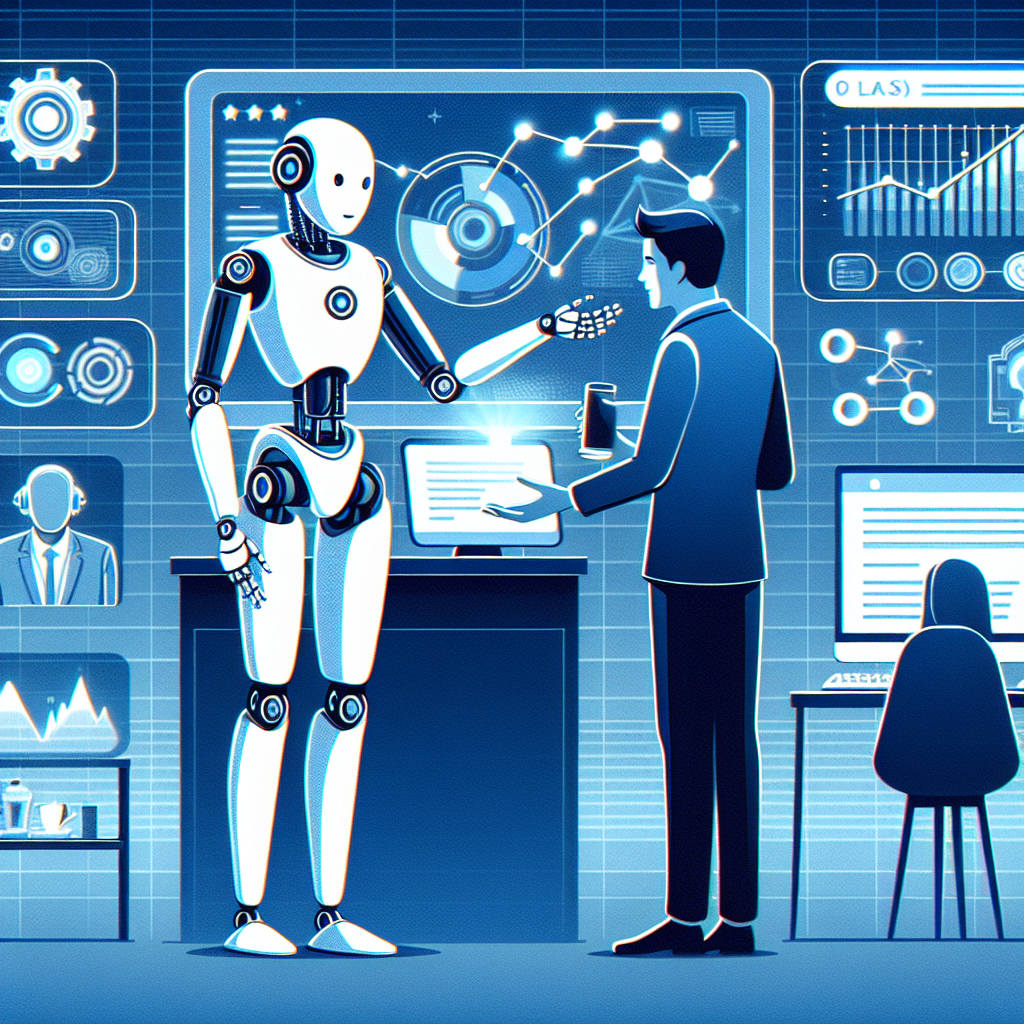Artificial Intelligence (AI) has revolutionized the way businesses interact with their customers, particularly in the realm of customer service. With the rise of AI-powered chatbots, virtual assistants, and predictive analytics, companies are able to provide personalized and efficient customer service at scale. While some may fear that AI will replace the human touch in customer service, the reality is that AI is actually enhancing the customer experience by freeing up human agents to focus on more complex and high-touch interactions.
AI-powered chatbots are becoming increasingly common on websites and social media platforms, offering customers instant responses to their queries and allowing businesses to provide 24/7 support. These chatbots are able to understand natural language and context, providing more personalized and relevant responses than traditional automated systems. They can also learn from each interaction, becoming more intelligent and efficient over time.
Virtual assistants like Amazon’s Alexa, Apple’s Siri, and Google Assistant are also changing the way customers interact with businesses. These AI-powered assistants can provide information, make recommendations, and even complete transactions on behalf of the customer. By integrating virtual assistants into their customer service strategy, businesses are able to provide a seamless and convenient experience for their customers.
Predictive analytics is another key area where AI is redefining customer service. By analyzing customer data and behavior, businesses can anticipate their customers’ needs and provide proactive support. For example, a retailer can use predictive analytics to recommend products based on a customer’s browsing history, or a telecommunications company can predict when a customer is likely to churn and offer them a retention offer.
While AI is undoubtedly transforming customer service, there are still concerns about the impact it will have on the human touch. Some worry that AI will lead to job losses for human agents, or that it will result in a less personalized and empathetic customer experience. However, many businesses are finding that AI and human agents can work together to provide the best of both worlds.
For example, AI-powered chatbots can handle routine inquiries and transactions, freeing up human agents to focus on more complex issues that require empathy and creativity. By automating the repetitive tasks, human agents can spend more time building relationships with customers and providing personalized support. This not only improves the customer experience but also increases employee satisfaction, as agents are able to focus on more meaningful and challenging work.
Additionally, AI can actually enhance the human touch by providing agents with real-time insights and recommendations. For example, AI-powered tools can analyze customer interactions and suggest the best responses based on past interactions and customer preferences. This not only improves the efficiency of the customer service team but also ensures that customers receive consistent and personalized support.
In conclusion, AI is redefining the human touch in customer service by enabling businesses to provide more personalized, efficient, and proactive support. While there are concerns about the impact of AI on human agents, many businesses are finding that AI and human agents can work together to provide the best customer experience. By leveraging AI-powered chatbots, virtual assistants, and predictive analytics, businesses can enhance the customer experience and build stronger relationships with their customers.
FAQs:
Q: Will AI replace human agents in customer service?
A: While AI is automating many routine tasks in customer service, human agents are still essential for handling complex issues that require empathy and creativity. AI and human agents can work together to provide the best customer experience.
Q: How can AI enhance the human touch in customer service?
A: AI can enhance the human touch by providing agents with real-time insights and recommendations, enabling them to provide more personalized and efficient support to customers.
Q: What are some examples of AI-powered customer service tools?
A: AI-powered chatbots, virtual assistants, and predictive analytics are all examples of tools that businesses are using to enhance the customer experience.
Q: How can businesses ensure that AI-powered customer service is ethical and transparent?
A: Businesses should ensure that their AI-powered customer service tools are designed with transparency and ethics in mind, and that they have processes in place to monitor and address any issues that may arise.

